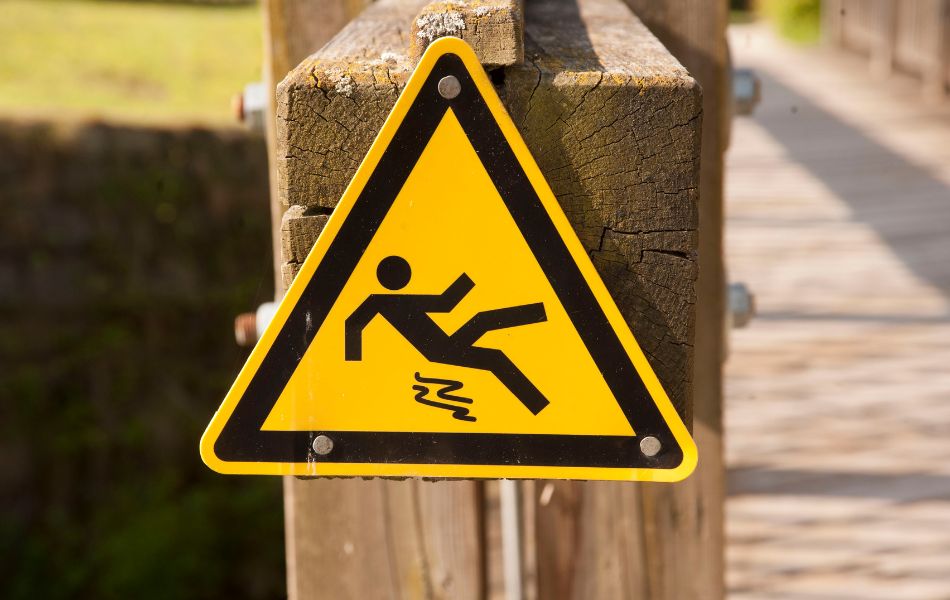In Massachusetts, slip and fall incidents are more common than you might think, and determining liability in such cases can be a complex process. If you or a loved one has been involved in a slip and fall accident, it’s essential to understand the legal aspects of these incidents.
The Prevalence of Slip and Fall Accidents in Massachusetts
Slip and fall accidents are unfortunately quite common in Massachusetts. These accidents can happen in various settings, including public places, private properties, businesses, and even homes. Factors such as weather conditions, uneven surfaces, wet floors, or poorly maintained premises can contribute to the occurrence of these accidents. Our experienced personal injury lawyers have seen a wide range of slip and fall cases, and we are here to help you navigate the legal aspects.
Duty of Care in Massachusetts
One of the key elements in determining liability in a slip and fall case is establishing the concept of “duty of care.” Property owners and occupiers in Massachusetts have a legal obligation to ensure the safety of visitors. This duty includes taking reasonable steps to maintain their property in a safe condition, warn visitors of potential hazards, and fix any dangerous conditions promptly.
Proving Negligence in Slip and Fall Cases
To establish liability in a slip and fall accident, it’s crucial to demonstrate that the property owner or occupier was negligent. Negligence implies a failure to fulfill the duty of care and maintain a safe environment. To prove negligence, you must show that:
- The property owner or occupier owed you a duty of care.
- They breached this duty of care by not addressing or warning about a dangerous condition.
- The breach of duty directly led to your slip and fall accident.
- You suffered injuries and damages as a result.
Comparative Negligence in Massachusetts
Massachusetts follows a “comparative negligence” system, which means that if the victim is found partially at fault for the accident, their compensation may be reduced accordingly. This underscores the importance of having strong legal representation to build a solid case in your favor.
Premises Liability Laws in Massachusetts
The laws governing premises liability in Massachusetts can be complex, as liability may vary depending on the type of property and the status of the person who suffered the injury. Some common categories for premises liability include:
- Invitees: These are individuals invited onto the property for the benefit of the property owner, such as customers in a store. Property owners have a high duty of care towards invitees.
- Licensees: Licensees are individuals who enter the property for their own purposes, like social guests. The property owner is still obligated to address known hazards and warn licensees.
- Trespassers: Property owners owe minimal duty of care to trespassers, except for intentionally harmful actions.
Common Causes of Slip and Fall Accidents
Understanding the common causes of slip and fall accidents can help in determining liability:
- Wet or Slippery Surfaces: Spills, leaks, or inadequate drainage can create hazardous conditions, particularly in businesses and public places.
- Poorly Maintained Walkways: Cracked sidewalks, uneven surfaces, and poorly maintained flooring can pose serious risks.
- Inadequate Lighting: Dimly lit areas can make it difficult for individuals to identify hazards and avoid accidents.
- Neglected Stairs and Railings: Broken handrails and uneven steps are known culprits in slip and fall cases.
- Unattended Snow and Ice: In Massachusetts, snow and ice buildup can lead to slippery conditions during the winter months. Property owners must take appropriate measures to maintain their premises.
Gathering Evidence in Slip and Fall Cases
To determine liability in a slip and fall accident, evidence is essential. Collecting and preserving evidence is critical to building a strong case. You should document the scene, take photographs, gather witness statements, and seek medical attention for your injuries. Our experienced personal injury lawyers can help you gather the necessary evidence and navigate the legal process.
Seek Legal Representation
Slip and fall accidents can result in severe injuries and financial strain. To determine liability in Massachusetts, it’s crucial to establish negligence on the part of the property owner or occupier. The duty of care and premises liability laws are key factors in these cases, and gathering evidence is essential.
If you’ve been involved in a slip and fall accident in Massachusetts, seeking legal representation is often the best course of action. Our personal injury lawyers have a deep understanding of Massachusetts premises liability laws and will fight for your rights. We will work to establish liability and help you receive fair compensation for your injuries, medical bills, lost wages, and pain and suffering.

